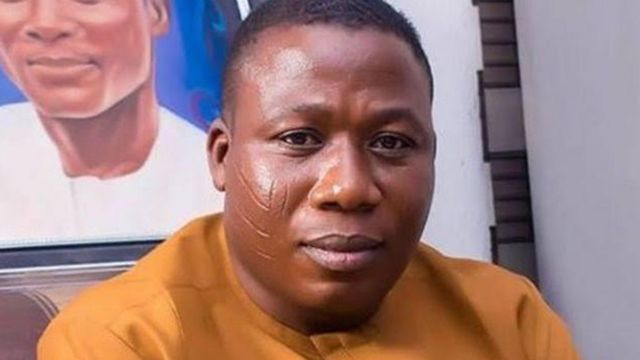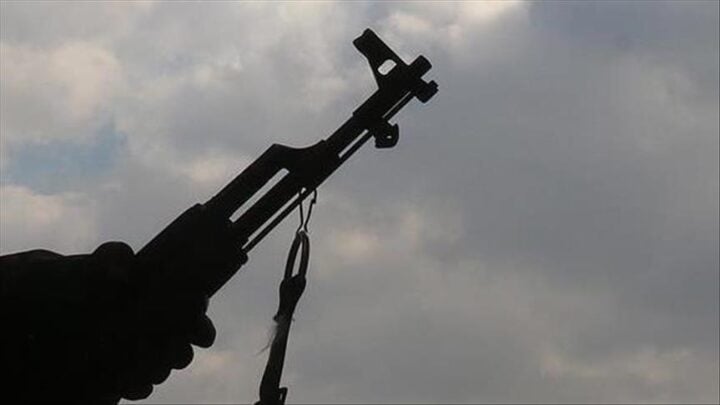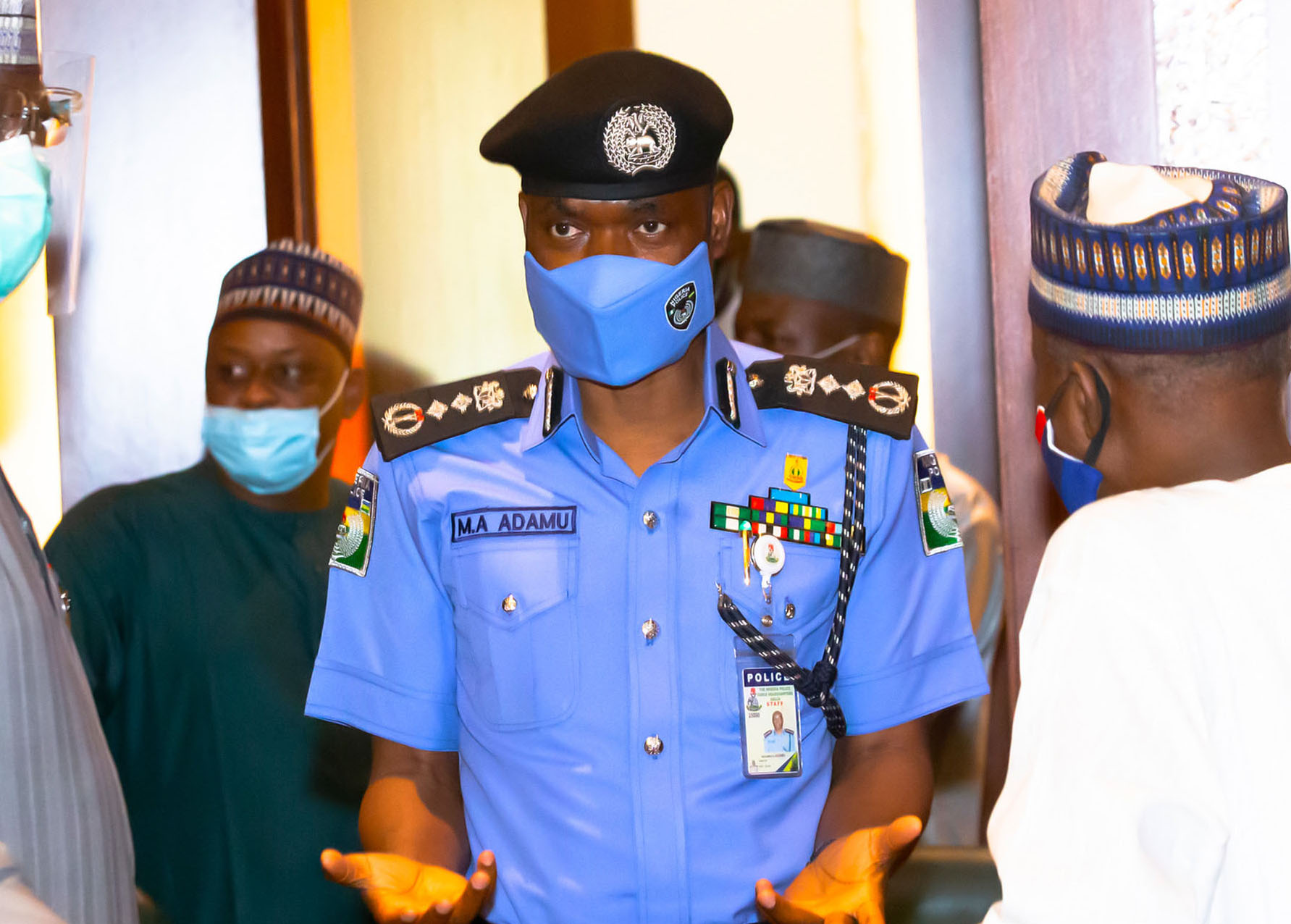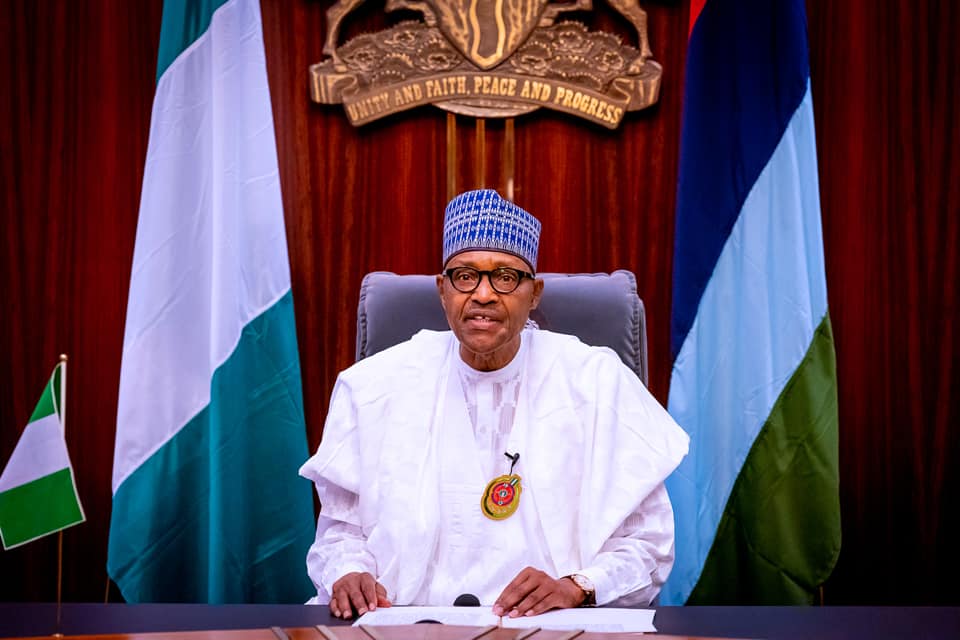Two of Yorubaland’s most prized states’ helmsmen – Governors Oluwarotimi Akeredolu and Seyi Makinde – have made very strong but seemingly diametrically opposed positions on the security of their people, making it the most talked about issue in the nation today. In recent time, their Ondo and Oyo States have become hotbeds of the scalding hot security crises in Northeastern and Northwestern Nigeria. Flakes of the unending years of savage Boko Haram war in the Northeast are whooshing gently but destructively and settling on Western Nigeria. Fleeing displaced Northerners who escape to the bosom of Oduduwa are stretching Southwest space beyond tolerable level. Infrastructure is becoming unbearably elasticized. Firepower of artilleries is stampeding insurgents from the theater of war and with mounting fire of Northwest banditry, forests of Yorubaland are now comparatively safe havens for fleeing warlords. At the same time, proceeds of kidnapping in Yorubaland are said to be surviving funds renegades of Northeast insurgents and ragtag armies of the bandits of Northwest remit home for the sustenance of their evil war. Unable to withstand the economic weather at home, their neglect by government and the Islamic tzedakah system that constituted their survival for centuries, northern beggars and vagrants are also migrating westwards in thousands.
The above alien challenges have successfully defaced the aesthetics and perforated the peace of Yorubaland. The army of beggars in Southwest today will sober even Senegalese-born author and first published Black African Francophone novelist, Aminata Sow Fall of the Beggars’ Strike fame. In Ibadan, for instance, beggars paste themselves like foamy lather round the Mokola overhead bridge, in almost a hundred, while their kindred are scattered round the city in embarrassing proportions. They even have the temerity to sun-dry their tattered clothes on the Ibadan bridge’s metal railings which they have converted into their balustrade. The second evil is the small weevils in the form of ubiquitous young northern bicycle riders, known as Okada, which infest the land like irritant locusts. They are deadly riders who have no respect for traffic rules or law and order. They are responsible for a horde of fatalities on the highway.
One man who should know, Chairman of the Oyo State Security Network Agency, codenamed Amotekun, Col Kunle Togun, (rtd) last week introduced a new dimension to the infestation. Many of the Okada riders, he said, are foreigners and spies for kidnappers and bandits who enter Yorubaland through Nigeria’s porous borders. According to him, ferried into Oyo and other Yoruba States during the COVID-19 lockdown via articulated lorries, most of these Okada riders cannot speak any of the Nigerian languages or English but French and have no known residency permit. Coming on the heels of this invasion is another internal invasion, said Togun. It comes in the form of Yoruba traditional rulers allocating lands to Fulani herdsmen and who, “take money, cows and cars from these people and allow them to settle and wreak havoc in their domains.”
In January, 2018, I had written about the deadliness of Fulani herders. Fulani herdsmen have been declared one of the deadliest terrorist groups in the world by the Global Terrorism Index (GTI). In a survey, GTI said the herdsmen, mainly of the Fula ethnic group, killed 80 people in total in 2013 but by 2014, had murdered at least 1,229 people. The group, according to the report, operates between Nigeria and parts of the Central African Republic (CAR) and had killed 847 people in 2015 across five states in Nigeria through several coordinated attacks during which they inflict varying degrees of attacks on local civilian populations. According to GTI, the attacks were unleashed on private citizens and the Fulani terrorists’ primary and audacious contest is for the farmlands of their victims. These are the people the Nigerian government covers in baby shawl.
Advertisement
President Muhammadu Buhari and a few of his uncritical minded aides have annoyingly sought to legitimize Fulani invasion of Yorubaland and their audacious evils. In September 2018, on the sidelines of the China-Africa Cooperation Summit in Beijing, while addressing Nigerians, Buhari personally lapsed into a variant of his usual incoherent epistle, this time adumbrating why herdsmen terrorism persists in Nigeria. “To my disappointment…the press in Nigeria do not make enough efforts to study the historical antecedents of issues that are creating national problems for us,” the president had waffled, citing what he called “cultural and historical implications” as responsible for the mindless murders and impunity of his brother-Fulani herdsmen.
The last straw that broke the camel’s back was the president’s deployment of callous euphemisms in the service of his waffle. He labeled the Fulani carnage “misunderstanding, especially between herders and farmers” finally heaping the blame of the persistent murders on climate change and the drying up of Lake Chad. This, he claimed, necessitated the frenetic search for pastures by displaced cattle nomads. About the same time, his Minister of Defence, Mansur Dan Ali, another Fulani descent, toed same vacuous route of the drying-up of Lake Chad, as well as scarcity of pasture as cause of the Fulani mayhem. At another forum, we were told that renegades of Muammar Gaddafi’s armed men found their ways out of Tripoli to Nigeria with weapons and mutated into the killer herdsmen. At yet another forum, Buhari laid the blame squarely on the doorsteps of ISIS and later, on spiritic opposition members who, in the quest to tar-brush his government, have been funding the mayhem. Buhari’s incoherence has ceased to baffle intelligent listeners.
When it was reported that this self-same Fulani herdsmen had killed Mrs. Funke Olakunrin, daughter of Afenifere leader, Pa Reuben Fasoranti, along the Ondo-Ore road bordered by thick forests, Buhari again deployed his legendary incoherence. Fulani herdsmen were not responsible for her murder. Armed robbers, he said, killed her.
Advertisement
Unarguably, no one in the Buhari government has been as recklessly audacious in hurting victims of herdsmen’s terrorism as Garba Shehu, the President’s media aide. Shehu has constituted himself into the most notorious presidential megaphone renowned for his divisive comments on Nigeria’s interminable insecurity issue. A few hours after Governor Akeredolu articulated the views of the people he governs, announcing that the Ondo forest, which Fulani herders use as umbrella to commit heinous acts of murder and mindless terrorism, would no longer be accessible for their impunity, Garba shot a verbal poisonous arrow at the people of Ondo State, nay Yorubaland.
Clothing his garrulousness in the cloak of law, his statement also rankled with an argumentative pitfall called appeal to the person. Shehu began his fallacy with Akeredolu being “a seasoned lawyer, Senior Advocate of Nigeria and indeed, a former President of the Nigerian Bar Association (NBA)” and that he had “fought crime in his state with passion and commitment,” but, “in our view,” he said, “would be the least expected to unilaterally oust thousands of herders who have lived all their lives in the state on account of the infiltration of the forests by criminals.” Garba’s doggerel also appealed to “rights groups” and “makers of our constitution” who he said would be worried by Akeredolu’s action which he claimed “could set off a chain of events which he foresaw and tried to guard against.” He was apparently borrowing a leaf from his master’s incoherence.
To begin with, that statement was one of the swiftest to come from a presidency that seems in perpetual somnolence. It underscores Fulani issue being at the core of Buhari’s emotions. It came less than 24 hours after Akeredolu’s. As usual, it was a bid to again beatify Fulani herders who are known to be responsible for the spate of kidnappings and murders in the Southwest. But Akeredolu would not allow such hogwash dressed in a presidential bandana. “Shehu’s statement is a brazen display of emotional attachments and it’s very inimical to the corporate existence of Nigeria. We need clearly defined actions on the part of the federal government to decimate the erroneous impression that the inspiration of these criminal elements masquerading as herdsmen is that of power,” he said. He successfully echoed bothers on the streets that the Buhari government provides a nestling comfort and hibernation for Fulani killers and values the lives of his fellow Fulani cows more than Nigerians’.
The Oyo State scenario is both similar and dissimilar to the Ondo imbroglio. One Sunday Igboho, who before now was notorious as leader of a statewide land-grabbing cartel and political violence, had reportedly given a seven-day ultimatum to Fulanis to leave Yorubaland. Following a spate of murders, kidnappings and robberies allegedly perpetrated by Fulani herdsmen in Oyo, Igboho was said to have stormed Igangan, Ibarapa area residence of the Seriki Fulani, Saliu Abdul-Kadri, to tell him that an end had come to the Fulani irritancy.
Advertisement
In a statement issued by Governor Makinde however, he seemed to have sounded like a pacifist in the war to rid Yorubaland of the evil of Fulani herdsmen’s notoriety. While noting that “individuals who are not authorized are going around chasing people from their homes and causing mayhem,” Makinde said that “This assault on residents of Oyo state is not the way to further the Yoruba cause.” And that his administration would not “sit back and watch anyone make any law-abiding resident of Oyo State feel unsafe in their homes, farms, or business places.” Igboho was apparently the referent in Makinde’s innuendo.
Compared to the unusual valour, courage and strength demonstrated by Akeredolu, on the superficial, Makinde sounded like one kowtowing before the Fulani vermin sucking the blood of Yorubaland. However, if you were abreast of some of the issues oscillating in Oyo State, you cannot but act with Makinde’s kind of caution. One is that, but for his latter-day claim to fighting for the people, the name Sunday Igboho was associated with violence, land-grabbing, tyranny and political gangsterism. Hundreds of families who have, over the years, fallen victim of Igboho’s land-related violence would be very circumspect on the real motive of his new-found activism.
I suspect that this de-javu undergirded the governor’s fear on Igboho. Should government accommodate the Igboho irritancy and promote outlaws in urgent thirst of rebranding into undeserved heroism? Which is more desirable in the bid to rout the Fulani criminal elements: embrace the crudity of rogue elements and their lawlessness, resort to their outlandish interventions and by that, justifying the pains and despair they inflicted on the people? In theory, any government which openly goes into an unholy dalliance with the lord of thugs cannot earn the respect of the people of Oyo State.
However, the above operates in the realm of theory. No governor is Chief Security Officer of his state, except in nomenclature. Seizing on the vacuum in security over the years and the known powerlessness of governors to rescue them from their tormentors, Igboho has become a hero among the traumatized people of Oyo State and as such, response to his call to arms is awesome. His heroism seems to have obliterated the long years of his infamy from the minds of the people. Today, Igboho is the David to the rescue of the people from the Fulani Goliath, their own Ogbomoso’s Ogbori Elemoso of the 15th century, and Makinde seems inconsequential in the equation.
Advertisement
So, is Sunday Igboho a reincarnation of Ogunlola? The story of Elemoso cannot be divorced from the Ogbomosho history, its civilization and conquest. It is the story of Olabanjo Ogunlola Ogundiran, an Ibariba. In 1650, history reported that Ogunlola and his wife named Esuu migrated to current site of Ogbomoso in continuation of his hunting expeditions. They settled beside the Ajagbon tree. With other hunters, Aale, a Nupe descendant; Onisile and Orisatola, they formed the Alongo, a system of administration aimed at securing their settlement against wild animals and enemy invasion. Imprisoned in Oyo-Ile for his oft delve into criminal activities, Ogunlola heard of the notoriety of a wicked and deadly character called Elemoso who was terrorizing Oyo-Ile people. He was believed to be a spirit. Ogunlola then went to the Alaafin to ask for his permission to confront this terror. At the palace, as Ogunlola told the king of his quest, palace courtiers shouted, “Elemoso, eni t’a o ri! Iwo ke! – Elemoso, an invincible man! You?” Grudgingly, Alaafin gave him the go-ahead and Ogunlola stormed Elemoso’s camp and shot him with an arrow, beheaded him and proceeded to the palace with the decapitated Elemoso.
On the surface and judging by his actions since he became governor, Makinde doesn’t seem to harbor any motive to be a Fulani fawner. More than many of his ilk in the PDP, he has fought the Buhari government’s policies most vigorously and has made the federal government look very stupid thereby, subtly underscoring the tissues of issues in true practice of federalism. His stubborn defiance of federal government’s herd mentality of COVID-19 lockdown and school resumption dates are core examples.
Advertisement
That notwithstanding, Makinde and the rest governors of the Southwest would need to flirt after what I call the Akeredolu spirit if they are to be respected by their people. Not doing this will make them to be worthless in the people’s estimation like Muhammadu Buhari and his government. This must however be executed with strict adherence to law and superior logic that the Yoruba are known by, the type that Akeredolu is deploying on Fulanis in Ondo State.
For some weeks now, that irrepressible Ibadan-based broadcaster, Edmund Obilo, has been bringing out the lamentable plights of the people of Igangan in the hands of Fulani herders and drawing out Makinde to confront them headlong. We all know that this won’t happen. With Buhari lionizing the herders in their infamy, no policeman will follow any governor on this suicidal mission.
Advertisement
Yes, I believe that Igboho is very central to this war now. However, he must go through some purgatory, be cleansed of the land-grabbing blood in his hands and return to the fold as leader of the traditional military response to the Fulani menace. There must be genuine repentance and forgiveness for his horde of infractions from thousands of people he inflicted pains upon. The next step would be for Makinde to collaborate with him after his penance to jointly rout the foreign invaders. None of the duo can do it alone. The two, with the support of Amotekun and the science of African metaphysics, should militantly move into the troubled areas of the state where Fulani herdsmen’s vitriol is most burningly dominant and, like Babagana Zulum, working with natives, smoke the blood-sucking deviants back to their land of infamy.
They should both forget their individual political leanings for now, for the sake of the people. This is because, as Bob Marley sang, all the Fulani criminals and their patrons in government desire at this moment for their evil to thrive is for the governor and Igboho “to keep fussing and fighting.” If government militarily descends on Igboho now, he may sprout uncontrollably and become another Muhammed Yusuff, progenitor of Boko Haram insurgency, whose rout by ex-Gov Ali Modu Sheriff and federal government precipitated the colossal havoc today on Nigeria. Igboho will even have the sympathy of the people. I will support him.
Advertisement
Again and very urgently too, Makinde should stampede out those foreigners and their local Fulani accomplices on Okada terrorizing the people. He should also rid Mokola Bridge, as well as the streets of Oyo State, of the eyesore of Northern Nigerian beggars who are defacing its environmental aesthetics and highly burnished peace. If Kaduna’s Nasir el-Rufai and Kano’s Ganduje could deport the eyesore of Almajiri from their states, South West has no business cuddling the menace that the North brought upon itself.
Being firm against the impunity and terrorism of Fulani herders is where the Southwest must begin to externalize what it means by restructuring, a la security. It should then proceed to escalate it further. The ultimate should be a campaign across the region, which must begin now, that only a bastard child of Yorubaland will vote in an unrestructured Nigeria in 2023. By then, Buhari, his Fulani stock and the bastards among Yoruba children who have already begun to campaign for positions in an unrestructured 2023 Nigeria, will begin to take Yorubaland seriously. We must stop them in this act of grabbing spoons to swallow their electoral vomit.
As I was putting my submissions to bed, I learnt that the federal government had ordered Igboho’s arrest. Great. It seems thesis and antithesis are about to clash so that we can see a synthesis. Perhaps this will speed up the denouement of this Fulani grisly drama. If a Buhari who has never put any Fulani murderer on trial in his over five years reign suddenly recognizes the colour of law and order, then let’s see whether Yoruba will allow this presidential tribal impunity to stand.
How to achieve immortality: The Agbato example
I never had the pleasure of meeting Olatunde Aiyedun Agbato, the Veterinary Doctor and giant farmer whose renown in the Nigerian agricultural sector is said to be a stuff of legends. Agbato died early this month at the age of 71 and was buried last Friday. Aside his wife expanse of agricultural site located in his hometown of Ogere in Ogun State which no passerby on the Lagos/Ibadan expressway can fail to notice, I picked legends about Agbato’s colossus status from two of his mentees, Olumide Origunloye and Adetona Obidele. Both passed through Agbato’s mentorship and regaled anyone who cared to listen with how the University of Ibadan 1975 Veterinary Medicine graduate’s humanity and mentoring have moulded hundreds of leading lights in Nigeria’s agricultural sector.
From a brief stint as an academic in his Ibadan varsity alma mater, Agbato moved into the private sector, establishing the O.A. & O.A. Associates which later transmuted into the Animal Care Services. That agricultural company, with special bias for poultry farming, later grew to become a pantheon and legendary colossus in the livestock products sector in Nigeria as a multi-billion Naira concern. It is impossible to mention three of such legends in Nigeria and skip Agbato’s which is reputed to be one of the hugest private sector employers of veterinarians and allied professionals in Nigeria. His giving back to his Ibadan varsity roots made the university award him the 2017 Alumnus of the Year.
Rather than the business empire he built from the scratch or the wealth he made therefrom, what I found most ennobling about Agbato are the various men and women he moulded, the eulogies of whom caused a huge traffic in the trove of elegies at his departure. It behoves all of us to constantly ruminate on the likely content of the world’s summation of our existence at our departure. Before the ailment which eventually took him away struck, Agbato must have projected a far longer life for himself. This speaks to the brevity of life and the uncertainty of the date and time of its strike.
His investment in humanity was his hugest trophy on earth. His mantra was “the candle doesn’t lose anything by lighting other candles.” He was said to have scant relationship with governments but the private sector. This manifested at his burial on Friday and while alive. Though a numero uno poultry farmer in Nigeria and his huge contributions to agriculture, he was never given any national award in recognition of his contributions. Government also carried this disdain to his burial. The highest government official present at this solemn occasion was the Ogun State Commissioner for Agriculture and Senator Adegboyega Kaka, the latter, Agbato’s colleague.
To uplift the status of his sleepy town of Ogere, he moved his Animal Care company there some years ago. Banks and other commercial ventures, ipso facto, moved to Ogere because of him and his people benefitted immensely from this gesture. It was said that there is no home in Ogere that didn’t have a representative among his staff. Agbato was a shrewd businessman with a can-do spirit of moving the biblical mountains and who didn’t believe anything on earth was impossible. His company was the first to begin producing vaccines for Nigerian poultry and in 1986, when investors were eloping from Nigeria on account of the constricting economy, Agbato stepped in to fill the vacuum by unilaterally producing poultry feeds for Nigerian agricultural sector. He was ahead of his peers by more than one million miles.
Yes, the world has become more plastic and cosmetic than ever before, breeding a hostile world where no one bothers nor is eager to sow into the life of the other person. It is a life reminiscent of habitation in the jungle where survival of the fittest is the rule and eliminating the weakest at random is the unwritten code. Here, the lions, tigers, hyenas and other wilds feast upon the feeble and miserable lots like the impala, antelopes and the likes while the crocodiles of this world even feast on the young crocs of their own species. Let’s learn from Agbato and make our lives to nevertheless be devoted to doing good and nothing more. Since no one who dies has ever returned here to give account of the modus operandi in the hereafter, we should all decorate our existence with bouquets of conscious daily living for humanity. How sure are we that the higher the tone of positive eulogies and garlands at our departure, the more certain we will achieve immortality? If the evocative elegies of his good works on earth are the qualification for a greater higher life, then Sir Agbato is right now in heaven.
Views expressed by contributors are strictly personal and not of TheCable.
Add a comment







